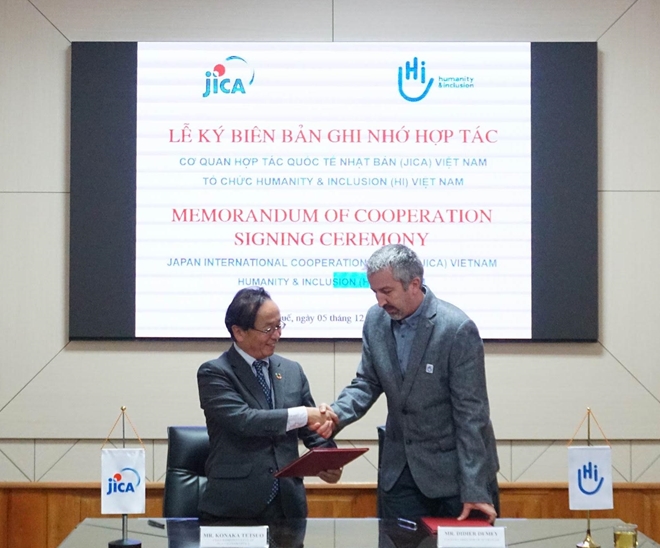JICA enhances support in Thua Thien Hue and Quang Tri provinces
In order to effectively and efficiently support the development and strengthening of comprehensive rehabilitation services in partner hospitals, JICA, through the JOCV (Japan Overseas Cooperation Volunteer) Section of its Vietnam Office, and HI, through its Vietnam Office formed a collaborative partnership in order to bring together complementary expertise and resources from both organizations.
JICA commenced JOCV program in Vietnam in February 1995. The objectives of JOCV Program are to contribute their skills, knowledge and experience to the local socio-economic development by integrating themselves to local life and enhancing the friendly relations between Japan and Vietnam. JOCVs in Vietnam are active in various fields such as medical care, Japanese language instruction, education, etc..
 |
|
Along with the increasing need of rehabilitation in Vietnam, the number of medical organizations requesting JOCVs in rehabilitation is also increasing. To improve the quality of rehabilitation services, JOCVs have been sharing their techniques, methods, international standard, principles of patient-centered care. They also organize training workshops, case studies and coordinate with hospital staff to enhance rehabilitation effectiveness and raise people’s awareness toward early intervention rehabilitation.
HI is operating the Project “The Advancing Medical Care and Rehabilitation Education” funded by United States Agency for International Development (USAID) which aims to improve quality of life of people with brain lesions, especially those with stroke, traumatic brain injury, cerebral palsy and/or spina bifida/hydrocephalus, by improving access and quality of rehabilitation services.
The project has developed standardized medical and functional rehabilitation care guidelines and strengthened the capacity of reference centers within the Ministry of Health and Provincial Departments of Health. One of the key objectives of the project is to improve technical capacities of rehabilitation professionals in hospitals, which is done, among others, through in-service training (Continuing Medical Education). To support training follow-up and mentoring of trained staff, the project is also placing international volunteers (PT, OT and ST) in partner hospitals to provide continuous technical support to the local service providers.

